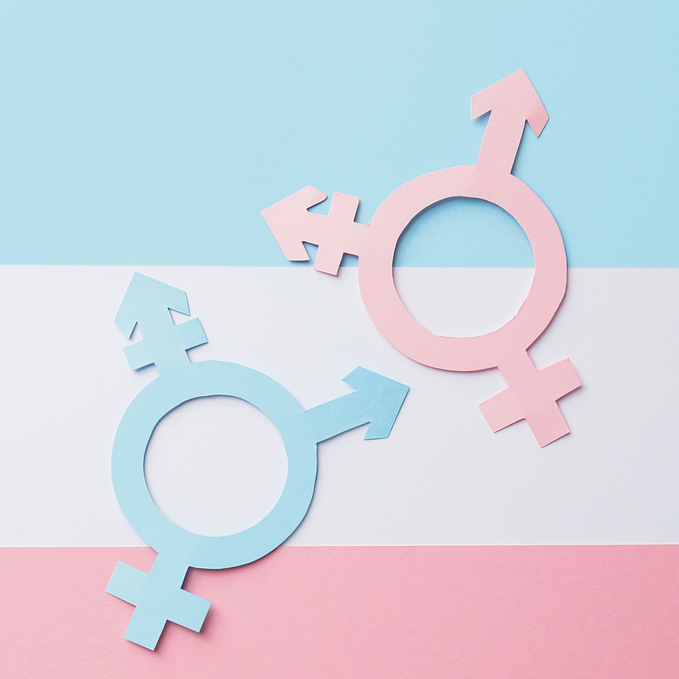5 Things you need to know about Power & Privilege

Intersecting Identities: Power & Privilege
As humans we are beautifully complex and complicated beings. And even though genetically we’re about 99.9% the same as the person sitting next to us, the way in which we identify ourselves, either by choice or as assigned, can vary wildly. Our identity is the way in which we characterise ourselves, in terms of our qualities, beliefs, personality traits, appearance, or expressions. It’s also the way in which we characterise others based upon on our knowledge of these same things too. But what has any of this got to do with Allyship?
Well, let’s look at an example. Take my identity…
White, Cis-gender woman, Queer, British, English speaking, Non-disabled
Each of us are not only one thing. The aspects of our identity intersect and overlap, so we may benefit from our privilege, or experience disadvantages in various ways. All of which depend on the aspects of our identity that are dominant or marginalised in the context of wider society.
In 1989, Kimberle Crenshaw coined the term intersectionality, describing it as “a lens through which you can see where power comes and collides, where it interlocks and intersects. It is the acknowledgement that everyone has their own unique experiences of discrimination and privilege.” Intersectionality shows us that social identities work on multiple levels, resulting in unique experiences, opportunities, and barriers for each person. Therefore, oppression cannot be reduced to only one part of an identity; each oppression is dependent on and shapes the other.
For example:
I am white and will therefore not be oppressed or disadvantaged in ways that I might if I were Black.
I am also a cis-gender woman, so while I may be disadvantaged in comparison to someone with male privilege, it is also likely to be less so than someone who is a trans-gender woman.
What might my experiences be if I were a Black trans man?
Or a South Asian woman with a disability?
Or a gay white man?
Intersectionality makes our identities complicated and understanding how power will be present for us and absent for others, in any given situation, is the start of our journey to understanding how we can take steps to show up for those around us as their Ally. And for understanding how to ask what help someone might need, instead of simply assuming what works for us will work for them too.
So what can we do?
1. Check our privilege
As we always say, the best place to start is at the beginning, so this means looking at ourselves. How often have you considered all the aspects of your own identity and what that may mean in terms of your power and privilege? Where have you noticed resistance or oppression in your own that may have been linked to your identity? What situations are there in which you’ve never given it a second thought?
· Job interviews
· Time to talk in meetings
· Being listened to in meetings
· Physical barriers in your daily commute
· Walking alone at night
But wait, isn’t privilege a bad thing?
Privilege is not about good or bad, it simply is. And recognising how we are, or are not, held back, overlooked or side lined is important when we want to be able to take meaningful and equitable action. We cannot help to level the playing field if we don’t yet understand how or why the game is rigged!
Think of it this way, we all get invited to a concert and when we arrive, we can see the stadium floor is flat. What does this mean for each of us in terms of what we can and can’t see? Naturally, those of us who are taller in the crowd will get a better view than those of us who are shorter. Now, the tall people didn’t ask to be taller, they simply are, and therefore don’t have their view hindered by the other people in the crowd. This is how privilege works. We don’t necessarily do anything to warrant an advantage, we are simply not hindered by certain things. In this case because the venue is designed in such a way that it places some people at a disadvantage, and this problem will always persist (systematically) until something changes.
Now, if all the taller people, allowed all the shorter people to stand in front of them, this would make it more likely that everyone would be able to see. There is also no danger of the taller people becoming shorter by doing this, so their position is not impacted. It’s not a zero-sum game and no-one has to lose.
“Privilege is not just about the presence of an advantage. It’s the absence of an impediment.” John Amaechi
2. Do our own research
Often, if we are approaching a situation from a position of privilege it can be easy to expect people from marginalised groups to educate us on the things we don’t yet know. While this is great if they are in a position where educating is their role, and they are paid, trained, and supported to do so (like me), it’s not ok to expect the burden of education to fall to our colleagues and friends. This is how oppression can bite twice; once from the systems and structures that oppress in the first place, and then again from the expectation to share their own trauma and emotion for the learning and benefit from those with privilege. Often at huge personal cost, with no reward.
The internet exists, as do books, audiobooks, podcasts, online resources, free and paid for downloads and training. Let’s do the work ourselves first and build upon this through educated conversation.
3. Ask and listen
This one is simple. Ask how you can help. Listen to the answer (without judgement or defensiveness). Do what you agree you will do.
4. Make space
Often, when we’re used to being included it can be difficult to see how others are excluded. Now that we have our Allyship Radar in the “on” position, and we notice how we are taking up more space than others, let’s be sure to make space. If we remember we’re the taller person, how can we make it so that someone else gets a good view?
- If you’re a white man invited to speak on a panel made up of other white men, can you decline your spot in favour of an equally qualified colleague who will bring a different perspective to you.
- If you are interviewing candidates for a role in your team, make sure that there are other interviewers present with you who will be able to check your blind spots and offer additional feedback for you to weigh against your own. Again, be sure that they will bring a different perspective to the discussion.
- If you notice the same person takes up more time speaking in a meeting or is called upon for their opinion more than other people, be sure to invite the perspectives of others in the room and give them equal time and importance.
5. Support
Take an interest and show up consistently in support of others.
- Men can organise and attend events on the menopause to listen, learn and show allyship to women
- Women can organise and attend events on men’s mental health to listen, learn and show allyship to men
- White people can attend events on advancing racial equity to listen, learn and show allyship to People of Colour
- Non-disabled people can attend events discussing disability issues to listen, learn and show allyship to their colleagues disabled by society
Not just for events on internationally recognised days, although these are great too, but throughout the year when no-one is looking or checking your social media.
And if you’re not sure how to support, go back to numbers 2 and 3 again and see what else you can learn.
Let’s recap:
- Intersectionality is acknowledgement that everyone has their own unique experiences of discrimination and privilege
- Being ashamed of our privilege is not helpful, as we each have little control over earning it. Acknowledging, understanding, and paying attention to how it shows up for us is within our control.
- We have a responsibility to educate ourselves by doing our own research, and not relying on marginalised people to do it for us.
- Ask how you can help. Listen to the answer.
- Don’t be tempted to speak on behalf of others, pass the mic and share the opportunities.
- Show up consistently and support people in ways they would like you to.








